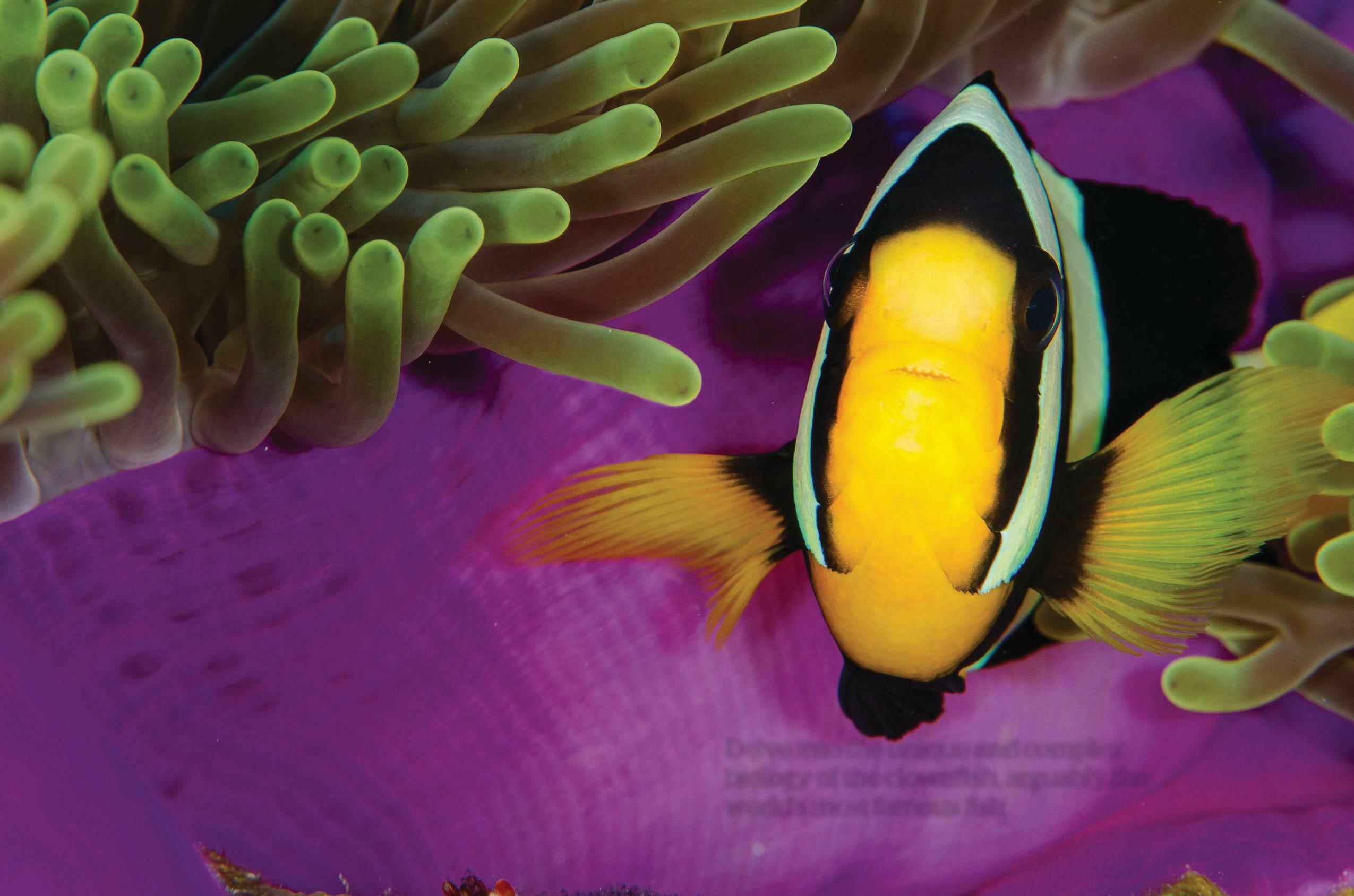
As the curtain of bubbles lifts, I find myself in the middle of coordinated chaos, as if I am standing still amidst rush hour at Waterloo Station. Yet instead of angry commuters cursing at my indecisiveness, I am met by flashes of cobalt, crimson, fuchsia, lime green… all streaming past in a three-dimensional fish ballet. The assortment of shapes and patterns is equally bewildering; these creatures seem to be plucked straight out of a child’s picture book.
Straddling the equator, the Maldives archipelago consists of more than 1,000 islands ranging from Malé, the densely populated island capital, to tiny sandbars that are drowned at high tide. Born of volcanic eruptions that have long ceased and settled as 26 atolls, the Maldives is the epitome of paradise, with flour-soft sand, aquamarine waters and palm trees whispering in the breeze. But its true magic lies hidden under the water’s surface, where gardens of coral are home to a multitude of jaw-droppingly vibrant and beautiful species.
I’m here to discover this underwater realm. Rey Gelera, resident marine biologist on Anantara Kihavah, guides me over the reef. As we dive deeper, he points out a small group of familiar, tangerine-hued fish decorated with white vertical bands. They are, of course, clownfish, immortalised in the movie Finding Nemo, which tells the story of a male ocellaris clownfish (Amphiprion ocellaris) who has lost his partner to a barracuda, and his son, Nemo, to the aquarium trade.
Esta historia es de la edición June 2024 de BBC Wildlife.
Comience su prueba gratuita de Magzter GOLD de 7 días para acceder a miles de historias premium seleccionadas y a más de 9,000 revistas y periódicos.
Ya eres suscriptor ? Conectar
Esta historia es de la edición June 2024 de BBC Wildlife.
Comience su prueba gratuita de Magzter GOLD de 7 días para acceder a miles de historias premium seleccionadas y a más de 9,000 revistas y periódicos.
Ya eres suscriptor? Conectar

SNAP-CHAT
Justin Gilligan on giant spider crabs and holding hands with an octopus

STEPPE CHANGE
Herds of saiga have returned to Kazakhstan, but there's a fine balance to tread

TREES FOR LIFE
Community is at the heart of conservation in the tropical forests of southern Belize

WHEN DOVES CRY
Turtle doves are now the UK's fastest declining bird species, but the RSPB is on a mission to save them

SURVIVAL OF THE CUTEST
We can't help being drawn to cute creatures, but our aesthetic preferences both help and hinder conservation

LIGHT ON THE NORTH
Spectacular images of Arctic foxes, reindeer and musk oxen reveal the wild beauty and diversity of Scandinavia

ROLLING IN THE DEEP
The super-sized crustacean that lives in the deepest, darkest ocean

LET'S GET TOGETHER
Clay licks deep in the Amazon explode in a riot of colour, with macaws the stars of the show

FEMALE OF THE SPECIES
To sponge or not to sponge? That is the question for the bottlenose dolphins (Tursiops aduncus) living in Shark Bay, Western Australia.

7 nature encounters for the month ahead
WITH NATURALIST AND AUTHOR BEN HOARE